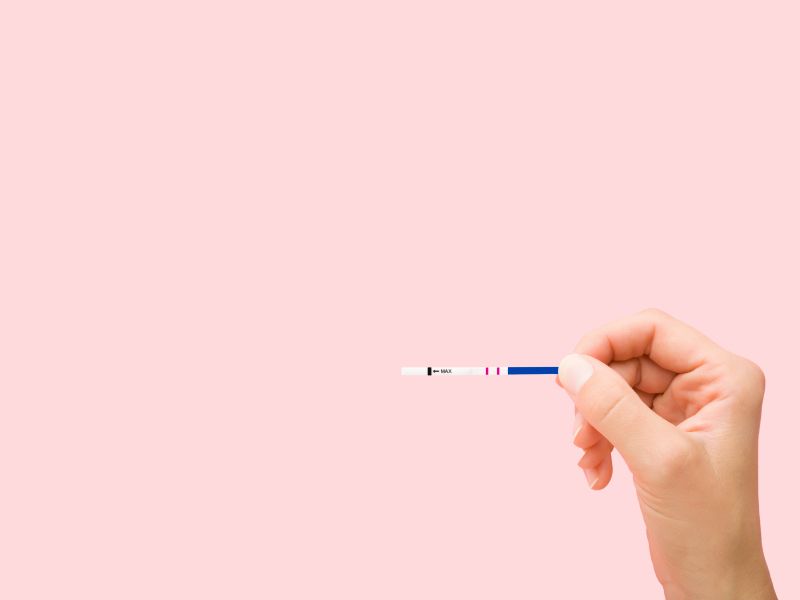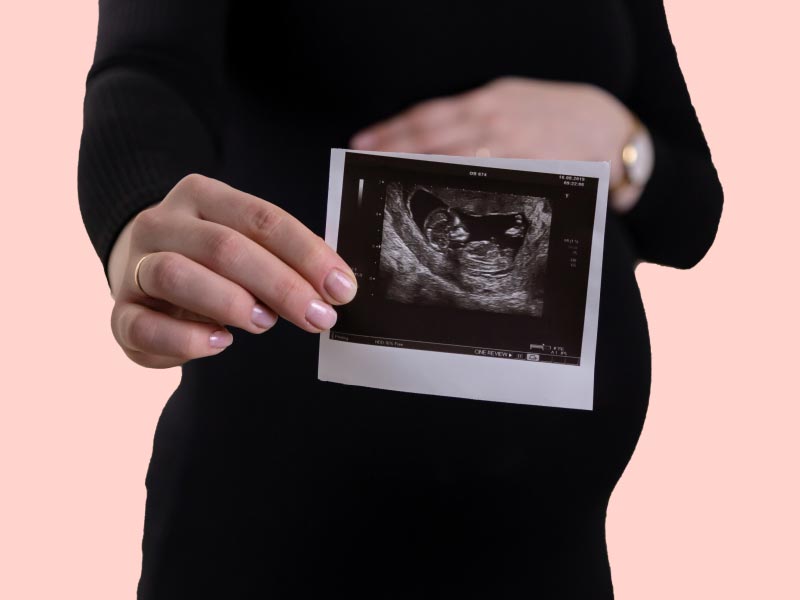
Do At-Home Fertility Testing Kits Work?
By Simona Byler
June 24, 2024
Did you know the average age for women to have their first child in the U.S. is 27? (1) Maybe that number surprises you, maybe it doesn’t! Either way, the Center for Disease Control and Prevention (CDC) released a 2024 report that shows trends in motherhood ages since 1990. According to the report, first-time pregnancies for women aged 15 to 29 have decreased, those aged 30 to 34 have stayed the same, and those aged 35 to 44 have increased steadily.
And we think these trends make total sense! There are plenty of reasons to delay pregnancy– maybe you’re pursuing a career, following a passion, or just not feeling ready for parenthood. But a side-effect of this trend is that you might be living in anxiety about your fertility. Luckily, at-home fertility test kits can help you understand your fertility and plan for your reproductive future. But do they work? Keep reading and let’s discuss everything you need to know about fertility test kits.
What are the advantages of at-home fertility testing?
Fertility testing home kits are becoming more and more popular, which means you have a lot of tests to choose from! While some kits are more comprehensive than others, the general advantages of fertility testing kits remain the same. So, let’s start with some good news and look at some advantages of at-home fertility testing.
Convenience: Fertility test kits are an easier, more convenient option when compared with traditional in-office testing. They can be done in the comfort of your own home, so you can skip the doctor’s office and any scheduling hassles. This makes at-home testing a great option if you have a busy schedule or don’t have a health clinic nearby.
Accessibility: You can buy fertility test kits at most drug stores and even more options exist online. Plus, test kits are available without a doctor’s appointment or referral. This makes them easily accessible to anyone who wants to learn more about their fertility.
Affordability: Traditional fertility testing involves multiple appointments and can be expensive, even with health insurance. At-home test kits typically range from $10- $250 depending on the test, making them a great option if you’re uninsured or can’t afford in-office testing.
Privacy: Your fertility journey is uniquely yours, and you might not feel comfortable sharing information about your sexual history or reproductive plans with a healthcare provider. At-home test kits are a more private and discreet avenue to understanding your fertility.
Usability: Fertility test kits are designed to be easy to use. They come with everything you need to collect your sample–usually urine, blood, or saliva–quickly and easily. After sending your sample to a lab, you’ll receive your results within a few days to a week.
Empowerment: At-home test kits are more affordable and accessible than traditional testing, making it easier to learn about your fertility indicators. Knowing about your fertility indicators can help you feel empowered throughout your fertility journey, so you can make informed decisions about your reproductive health.
What are the best fertility test kits?
Different test kits measure different potential indicators of fertility–and there are a lot! If you’re looking for a comprehensive analysis, the best fertility test kit for females will measure a host of hormones involved in reproduction. Let’s take a look at those test options below.
Fertility test kits for females
- Ovulation predictor kits (OKPs): OKPs measure the amount of luteinizing hormone (LH) in your urine, which surges 24-36 hours before you ovulate. A positive OKP test can help you know when you’re most fertile.
- Hormone tests: The female reproductive system is complex and full of hormones! At-home tests can measure hormone levels to help you evaluate the number of eggs you have, egg quality, and whether a fertilized egg can implant in your uterine wall. At-home hormone tests can measure follicle-stimulating hormone (FSH), anti-mullerian hormone (AMH), estradiol, progesterone, and others.
- Thyroid tests: Some at-home fertility tests also measure your thyroid stimulating hormone (TSH) to understand how well your thyroid is working. Certain thyroid problems can be related to fertility issues, indicated by high or low TSH levels.
As we mentioned, the female reproductive system is complex! Fertility test kits aren’t the final answer on whether or not you can get pregnant. But if you’re interested in testing your fertility at home, Wisp has got you covered.
Fertility test kits for males
If you were assigned male at birth, you’re an equal part of the conception equation! In general, about one-third of infertility cases are due to male factor infertility, one-third due to female factor infertility, and one-third due to both or unknown causes. (3)
At-home fertility test kits for men involve a semen analysis–and some tests are more thorough than others! The best semen analysis tests measure the amount of sperm present in your semen, how well the sperm move or swim, and the shape of the sperm. Comprehensive home fertility tests for men are more expensive, but they offer lab analysis and results without leaving your home.
How accurate is at-home fertility testing?
Alright, we understand why testing your fertility at home has some advantages over in-office testing. But, we also understand that none of that matters if the tests aren’t accurate! The accuracy of at-home fertility test kits can vary, depending on the type of test, when you take the test, and if you have certain medical conditions like polycystic ovarian syndrome (PCOS). Reading and following the test instructions carefully is a crucial factor in their reliability.
Some tests have you send in your blood or urine sample to a lab for analysis. For these tests, consider choosing an FDA-approved option that uses Clinical Laboratory Improvements Amendments (CLIA) labs–these tests are considered the most reliable! (2)
Other factors that can affect the accuracy of at-home fertility test kits are:
- Urine concentration: If your urine is too concentrated or diluted, it can affect whether an ovulation predictor kit detects LH in your urine. Testing with your first morning pee is recommended!
- Hormonal imbalances or PCOS: If you have PCOS, your LH levels might be higher throughout your entire cycle, not just before ovulation. This can cause a false positive for an ovulation predictor kit.
- Test timing: When you take the test can influence its accuracy, especially for OKPs. If you’re not sure how long your menstrual cycle typically lasts, it’s hard to know when to accurately test for ovulation. Tracking your cycle can help you pinpoint when you’re ovulating–then confirm with an OKP.
- User error: Testing kit instructions should be clear and easy to understand. But, we’re human, and we can make mistakes! Read everything carefully and make sure you provide an adequate sample for the most accurate results.
Testing your fertility at home can offer you some useful insight into your fertility indicators. But, keep in mind that they can’t give you a diagnosis or an official cause for any potential infertility. Testing kits are a great starting point for learning about your fertility, but they’re not definitive fertility assessments. You can always follow up with your doctor to help you interpret home test results, or pursue further fertility testing.
When should I start testing my fertility?
Even if you’re not feeling 100 percent ready for parenthood, future you might really appreciate it if you test your fertility early! Testing early can provide insight and information that will greatly benefit your family planning in the future.
And, if you’re under 35 years old and have been trying to conceive for a year–or if you’re over 35 and have been trying for six months–it might be time to check in with your fertility. While they’re not a substitute for clinical testing, at-home fertility test kits are an affordable and accessible starting point. If you’re ready to test, we’ve got you and your partner covered with Hers & His Advanced Fertility Kit by Proov. But remember, your fertility journey is yours! Whether or not you test is up to you, but if you have questions, we’re here to help.

Wisp Prenatal Vitamins
Starting at $14
Prepare for & support a healthy pregnancy with essential nutrients for you and baby.

Hers & His Advanced Fertility Kit by Proov
$169.99
The only all-in-one fertility test kit for couples that covers both male and female testing

The PherDal® At Home Insemination Kit
$199
The only FDA-cleared and 100% sterile solution for at-home insemination.



